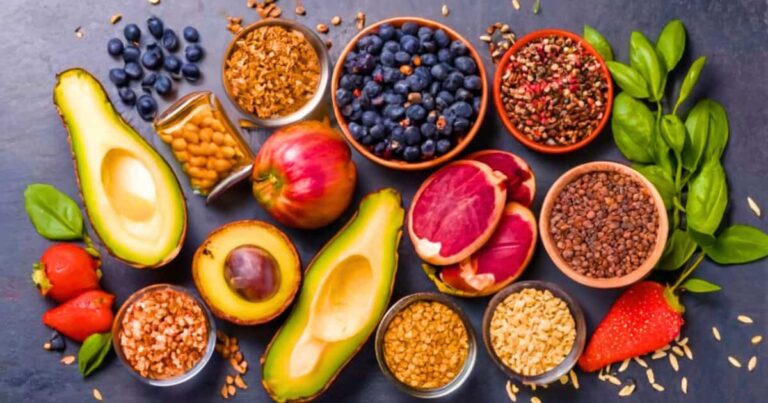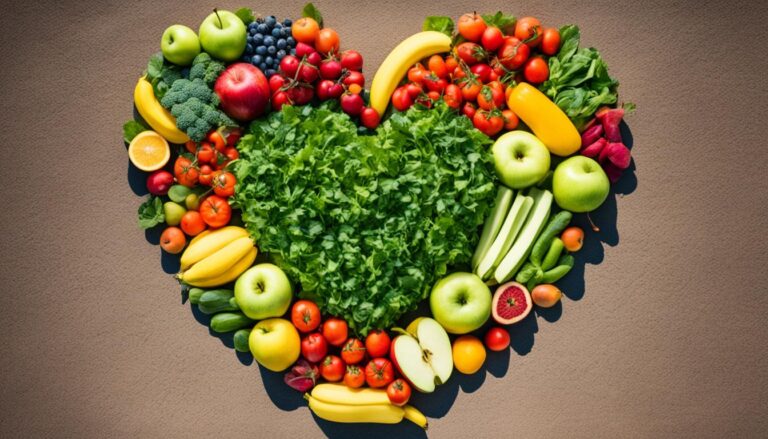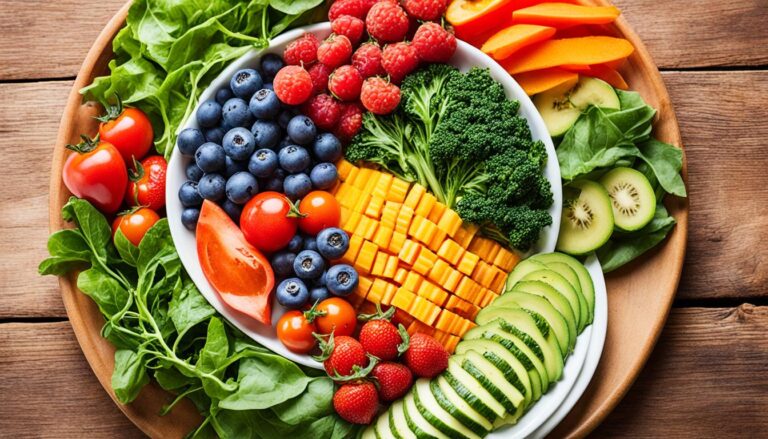Vitamin B12 is key for our health. It helps our nervous system makes red blood cells and supports DNA. But how do we get enough of it? The answer is to find the best foods rich in vitamin B12.
There are many ways to get vitamin B12. You can eat organ meats, shellfish fish dairy, and even some plant based foods. But which foods are the best sources? Knowing the top vitamin B12 foods helps us make better food choices and avoid deficiency.
Key Takeaways
- Vitamin B12 is crucial for maintaining healthy nervous system function red blood cell production, and DNA synthesis.
- Animal-based foods, such as organ meats shellfish fish meat dairy, and eggs are the primary sources of vitamin B12.
- Some plant-based options, like fortified cereals and nutritional yeast can also provide this essential nutrient.
- Identifying the top vitamin B12-rich foods can help ensure adequate intake and prevent potential deficiency.
- Consuming a varied diet that includes a range of vitamin B12 sources can optimize your overall health and wellbeing.
Introduction to Vitamin B12
Vitamin B12, also known as cobalamin, is a key nutrient for our bodies. It helps our nervous system work right and makes red blood cells and DNA. It’s also important for brain health.
What is Vitamin B12?
Vitamin B12 helps two important enzymes in our body. These enzymes help turn homocysteine into methionine and break down fatty acids and amino acids. This is crucial for our metabolism.
Importance of Vitamin B12 for Human Health
Getting enough vitamin B12 is key for staying healthy. Vitamin B12 deficiency can cause anemia, neurological issues, and brain problems. It’s vital for our body’s systems to work well.
Vitamin B12 is a key player in many important bodily processes making it an essential nutrient for overall health and well-being.
Adults need 2.4 micrograms mcg of vitamin B-12 every day. In the U.S. most people get enough B-12. But older adults, vegetarians, vegans, and those with B-12 absorption issues might need supplements.

Animal Based Sources of Vitamin B12
Animal-based foods are the top sources of vitamin B12. Organ meats like liver and kidneys are especially rich in this nutrient. For example a 3.5-ounce 100-gram serving of lamb liver has 3,571% of the Daily Value DV for vitamin B12. Beef and veal liver also offer high amounts, with about 3,000% DV per 3.5-ounce 100-gram serving.
Organ Meats Liver and Kidneys
Organ meats like liver and kidneys, are full of vitamin B12 in organ meats. They are not just rich in vitamin B12 but also in other important vitamins and minerals. Adding organ meats to your diet is a great way to get enough vitamin B12.
Shellfish Clams and Oysters
Shellfish like clams and oysters are also great for vitamin B12. A serving of 20 small clams 190 grams can give you over 7,000% of the DV for vitamin B12. Oysters are also packed with this essential nutrient making them a great choice to increase your vitamin B12.
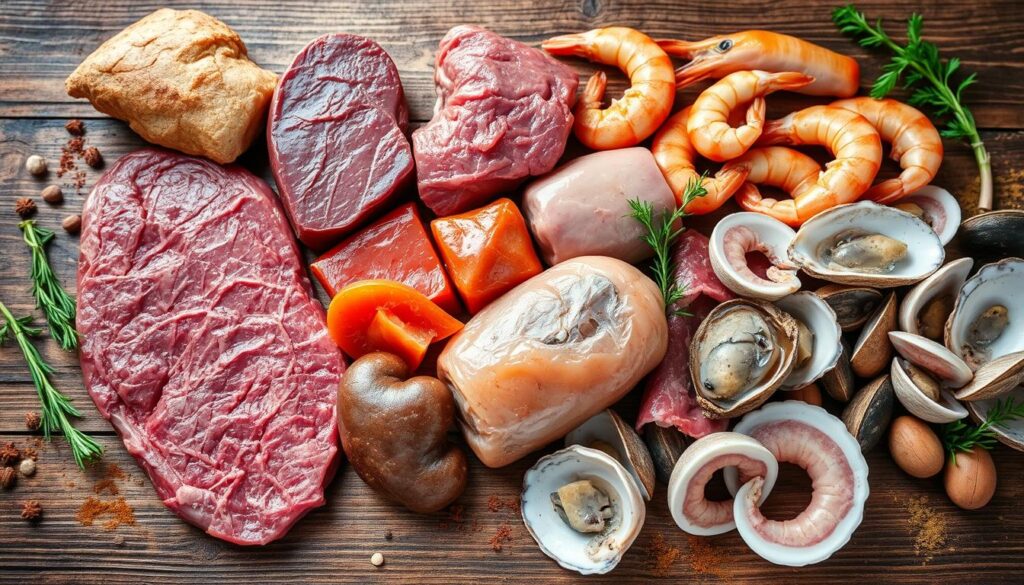
Read more: Vitamin B12 Can It Reverse Grey Hair?
Organ meats and shellfish are true powerhouses when it comes to providing vitamin B12 with some servings containing well over 100% of the recommended daily intake.
Fish and Seafood Rich in Vitamin B12
Fish and seafood are great sources of vitamin B12. This vitamin is key for DNA red blood cells, and brain health. Sardines salmon, and trout are among the best choices.
Sardines A Small Fish with Big Nutrient Punch
Sardines are small but packed with nutrients. A 1-cup serving gives you 554% of your daily vitamin B12. They also have lots of omega-3s, making them super healthy.
Salmon and Trout Vitamin B12 from Fatty Fish
Salmon and trout are also good for vitamin B12. A half-fillet of cooked salmon has 208% of your daily B12. Trout gives you 225%. These fish are not only rich in B12 but also in omega-3s, which are good for your heart and brain.
Incorporating fish and seafood rich in vitamin B12 such as sardines salmon, and trout, into your diet is an easy way to ensure you’re meeting your daily needs for this essential nutrient.
Meat Sources of Vitamin B12
Meat is a great source of vitamin B12, especially beef. A grilled flat iron steak about 190 grams has 467% of the daily value for vitamin B12.
To get the most vitamin B12 from beef, choose lean cuts. Grill or roast them instead of frying. This way, you keep more vitamin B12 in the meat. Beef also has other important B vitamins and minerals.

Vitamin B12 deficiency is common affecting up to 6% of people in the U.S. Eating more vitamin B12-rich beef can help. It ensures your body gets enough of this essential nutrient.
What food is highest in vitamin B12?
When it comes to vitamin B12, clams and liver are the clear winners. They are packed with this essential vitamin. This makes them the best foods for increasing your vitamin B12 levels.
Clams: A Rich Source of Vitamin B12
Clams are a seafood superstar when it comes to vitamin B12. Just 20 small clams about 190 grams can give you over 7,000% of the Daily Value. This makes them one of the richest natural sources of vitamin B12.
Liver Exceptionally High in Vitamin B12
Liver is another top choice for vitamin B12. Lamb liver, for example, is incredibly rich. A 3.5-ounce 100-gram serving has 3,571% of the Daily Value for vitamin B12. Beef and veal liver are also great, with about 3,000% of the Daily Value per 3.5-ounce 100-gram serving.
So if you want to make sure you get enough vitamin B12 choose clams and liver. They are the top foods highest in vitamin B12.
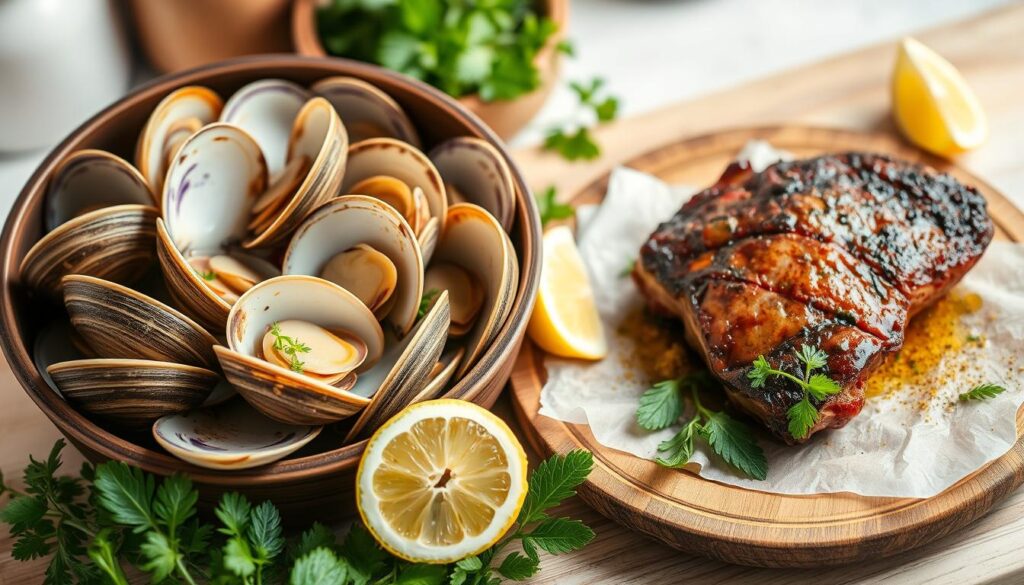
Read more: Which organ needs vitamin B12?
Vitamin B12 is crucial for red blood cell formation, cell metabolism, and nerve function. Ensuring adequate intake through foods like clams and liver is essential for maintaining overall health and wellbeing.
Dairy Products with Vitamin B12
Dairy products are a great source of vitamin B12. They offer a form of this nutrient that’s easy for our bodies to use. Milk yogurt and cheese are all good for your daily vitamin B12 needs.
Milk and Yogurt
One cup of whole milk has 46% of the Daily Value for vitamin B12. This makes milk a top choice for getting this vitamin. Full-fat plain yogurt is also a good source, and studies show our bodies absorb it better than from meat or eggs.
Cheese
Cheese is another dairy product full of vitamin B12. A large slice of Swiss cheese has about 28% of the Daily Value. Cheddar and parmesan cheese also have a lot of this important nutrient.
| Dairy Product | Vitamin B12 Content | Percent of Daily Value |
|---|---|---|
| 1 cup 240 mL whole milk | 1.2 micrograms | 46% |
| 1 large slice 22 grams Swiss cheese | 0.7 micrograms | 28% |
| 1 container 158 grams nonfat Greek yogurt | 1.09 micrograms | 50% |
The body absorbs vitamin B12 from dairy better than from other foods. So, these products are a great way to keep your vitamin B12 levels healthy.
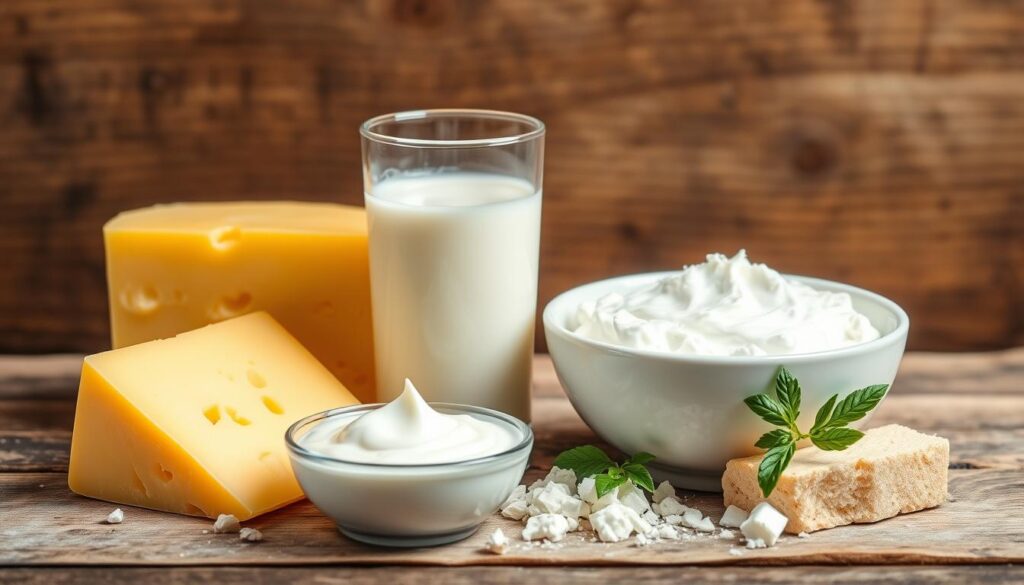
Read more: How much protein is in 2 eggs
Eggs A Versatile Vitamin B12 Source
Eggs are a great source of vitamin B12. This nutrient is key for making red blood cells, brain function and DNA. Just two large eggs give you 46% of the Daily Value DV for vitamin B12.
The vitamin B12 is mostly in the egg yolks. Yolks have more of this nutrient than egg whites. Also, the body absorbs vitamin B12 from yolks better, making eggs a top choice for this vitamin.
Eggs are not just good for vitamin B12. They are also full of protein vitamins, and minerals. They are great for any meal whether scrambled, poached, or in an omelet. Eggs are a tasty and healthy way to get the vitamin B12 you need.
| Food | Vitamin B12 Content micrograms per serving |
|---|---|
| Clams 3 oz cooked | 84 |
| Beef liver 3 oz cooked | 70 |
| Sardines 3 oz canned | 7.6 |
| Eggs 1 large | 0.6 |
| Milk 1 cup | 1.2 |
| Fortified cereal 1 serving | 6.0 |
Eggs are easy to add to your diet for vitamin B12. They are good on their own or in meals. Eggs are a healthy and tasty choice for your health and well-being.
Plant Based Sources of Vitamin B12
Plant-based diets are known for their health benefits. Yet, most plants don’t have vitamin B12 naturally. But there are fortified plant-based foods that are great for vegetarians, vegans, and those who eat mostly plants.
Fortified Cereals and Plant Milks
Many breakfast cereals are made with vitamin B12. They can give you up to 86% of what you need each day. Plant milks like soy, almond, and oat milk are also fortified. This helps those who don’t drink dairy get enough B12.
Nutritional Yeast
Nutritional yeast is a top choice for vitamin B12 in plants. Just one tablespoon can give you up to 733% of what you need. It’s a great way to get more B12 easily.
| Food | Vitamin B12 Content |
|---|---|
| Fortified Breakfast Cereal 1 serving | Up to 86% of the Daily Value |
| Fortified Plant-Based Milk 1 cup | Up to 86% of the Daily Value |
| Nutritional Yeast 2 tablespoons | Up to 733% of the Daily Value |
While fortified plant foods are good for vegetarians and vegans, how well your body absorbs B12 from them can vary. It’s wise to talk to a healthcare expert or a dietitian. They can help make sure you’re getting enough B12 on a plant-based diet.
Vitamin B12 Supplements
For those who can’t get enough vitamin B12 from food, supplements are a good option. Vitamin B12 supplements are often suggested for older adults, pregnant or nursing women, and those who don’t eat meat. They are also recommended for people with certain health issues that make it hard to absorb vitamin B12.
Vitamin B12 supplements are available in tablets, capsules, and liquids. You can take them by mouth or get them through injections. Studies have found that both oral supplements and injections can help raise vitamin B12 levels in those who are low.
When to Consider Supplements
The amount of vitamin B12 you need changes as you get older. People who might need vitamin B12 supplements include:
- Older adults, as they may have trouble absorbing vitamin B12 from natural food sources due to decreased stomach acid production.
- Pregnant or breastfeeding women, as their RDA increases to 2.6 mcg and 2.8 mcg, respectively.
- Vegetarians and vegans, as vitamin B12 is primarily found in animal-based foods.
- Those with medical conditions that impair vitamin B12 absorption, such as pernicious anemia, Crohn’s disease, or after gastric bypass surgery.
While vitamin B12 supplements are generally safe, it’s important to talk to a healthcare professional. They can help figure out the right amount and type for you based on your health and needs.
Keeping your vitamin B12 levels in check is key for your blood and nerve health. It also helps with DNA making. By taking vitamin B12 supplements when needed, you can make sure you get enough. This supports your overall health and well-being.
Conclusion
Vitamin B12 is key for our health. It helps our nervous system, makes red blood cells, and is important for DNA. Animal products like organ meats, shellfish, and dairy are rich in it. Some plant-based foods are also fortified with vitamin B12 helping vegetarians and vegans.
Eating a variety of top foods high in vitamin b12 is important. If you can’t get enough from food, supplements can help. Vitamin B12 is crucial because not having enough can cause serious problems like nerve damage and heart disease.
Knowing where to find vitamin B12 and how much we need helps us stay healthy. Making smart choices about our diet supports our overall wellbeing.


